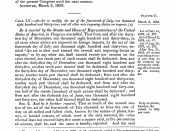There have long been two opposing arguments in regards to what would help the citizens of the poorest nations more the first being to increase foreign aid and the second, to remove all agricultural tariffs and subsidies. The main problem surrounding subsidies is it allows first world exporters to drastically reduce the prices of their goods and, thus have a commercial advantage over the farmers of poorer nations. The question remains would it in fact benefit the developing world greater to remove subsidies and tariffs on agricultural products or, simply increase foreign aid to these poorer nations? It is an important issue as it concerns many factors including fundamental morals, world economics, the welfare of the developing world and welfare of the developed world. This essay will help to establish the fact that although the past increases and, possible future increases of foreign aid received by developing countries is not unwelcomed, the fact the foreign aid continues to be necessary shows that it is not a permanent solution for the economy of poorer nations.
The problems still remain that aid will continue to have negligible impact if subsidies and tariffs are not significantly restricted. There is an underling dilemma between the ethics and practices of international trade and business. The point put simply is rich countries can maintain their own standards with tariffs and agricultural subsidies and, ease their conscience with foreign aid. The issue with this form of reasoning is it doesn't solve the real problem in the long term. There seems to be little point in declaring to help third world countries with aid if first world countries don't enable them to sell their products at a profit. The real answer to agricultural and economic success of poor countries lies in the abolishment of all subsidies and tariffs.


